NEW ALBUM: ‘VIA AD AETERNA’ by TIMOTEJ KOTNIK
Valencia-based composer and trumpeter Timotej Kotnik has released his debut recording ‘Via Ad Aeterna’. Translated from Latin, this means ‘The way to eternal’. According to his website, the 6-track concept album “Unfolds like an eclectic modern mass, whose liturgy extols influences from Afrobeat to Balkan, against a backdrop of Miles Davis-inspired Jazz-Rock. Virtuosic jazz improvisations, punchy rhythm section hits and distorted shredding guitars weave a narrative of human redemption from exultant start to triumphant.”
Kotnik’s tracks are layered, complex and impossible to narrow down to any single genre. Importantly, these songs evoke emotional connection. The titles reveal the conceptual narrative adding up to a complete musical song cycle. The motif provides Kotnik’s improvisational trumpet playing a graceful prominence in the compositions.
Opening track Rebellium (Rebellion) is hard-hitting and energetic. One quickly recognizes Kotnik’s ‘Miles Davis-inspired’ playing. The next track Excidium (Extinction) leans into a more chill, latin jazz vibe with Sebastian Laverde’s percussions providing a well-planted rhythmic energy. Again, the instrumentation provides a lush canvas for Kotnik’s trumpet. Vid Jamnik’s vibraphone solo stands out as excellent musicianship. Complex and precise passages have Zappa-like acumen.
Insomnium (insomnia) starts with Aliya Cycon playing solo oud, conjuring the comfort of a vast desert night. The lulling Spanish phrygian mode sets mood as flamenco-style hand-clapping builds texture before the trumpet enters. Further on, Miha Koren funky backbeat bass plays before returning to the opening dulcet soundscape. A fusion of textures that leaves the ears wanting more. The forth song is one titled Pharos (Lighthouse). Dizzying horn riffs open to a 70s funk vibe. It has a jazzy car chase energy.
Aurora (Dawn) is progressive jazz. Melodic and relaxed with sharp turns. The closing track Agnus Dei (Lamb of God) is the grand finale opening with operatic vocals by Kade Bennett accompanied by a sparse soundscape. Trumpet leads with the guitar following the melodic response between the vocals. Guitar and horn section punch through, building momentum for an epic close. Joshua Wheatley plays drums throughout with Marko Čepak Maki and Jure Praper on guitars.
Recorded remotely, enabled Kotnik to embrace the advantage of self-producing with remote recording of non-local musicians. While having to push through a digital disconnect as they missed out on shared musical chemistry in the same room, conversely they recorded with individual autonomy making room for pleasant and subtle surprises. In part, it is a healthy exercise of letting-go. So, choosing this ensemble was critical and it worked out great. They are all top-shelf musicians who delivered.
Kotnik teaches at Berklee College of Music, Valencia. And when not with students, he gigs live while keeping busy as a new father. Lots of priorities competing with writing, arranging, playing, producing new and releasing this original material. The project started in August of 2021 and progressed with fits and starts between lockdown and he and his wife, Aliya recently welcoming their first born child. But there is nothing more powerful than a project whose time has come. Once the moving parts aligned, it came together in a great order.
Report by Phillip Solomonson
EXCLUSIVE ’24/7 VALENCIA’ INTERVIEW WITH TIMOTEJ KOTNIK
24/7 VALENCIA: Can you tell us about your background and musical education?
TIMOTEJ KOTNIK: I was born and raised in a small town in the northern hills of Slovenia. I started playing drums when I was six years old, but changed to trumpet a couple of years later – drums were just too heavy to carry around. Ha-ha! My brother was an amateur trumpeter and part of a local big band. Since he would bring me to the rehearsals with him, I got exposed to jazz very early on and knew even then I wanted to become a musician.
The musical director of the big band later became my trumpet teacher and quickly recognized my passion for jazz and exposed me to Miles Davis records and improvisation. I thought it would be important to make sure I had good foundations in trumpet playing, so I decided to attend a classical music high school and only after graduating I decided to go fully into jazz and contemporary music. I moved to The Netherlands for my bachelor studies in jazz performance at Prins Claus Conservatoire, but since I was not a big fan of going to school, I spent two years attending only the core classes, but spent the rest of the time playing outside of school. I played 3-4 nights a week, any and every genre, which gave me a wide pallet of musical influences and experiences and I think that very much reflects in my own music. I did graduate on time though! Ha-ha! After that, I moved to Valencia to do my masters at ‘Berklee Valencia’ and shortly thereafter got hired to teach.
What is so special about the trumpet that makes it so universal an instrument? Well, the trumpet has always been a prominent instrument. A royal instrument and a battle call instrument too. Even in the biblical times, it was recognized as important in its many different roles. I think it is a particularly versatile instrument. You can blast someone’s head off with power and range, or you can lull someone to sleep with its soft and warm sound. Not many instruments can do that.
How does living and working in Spain compare to Slovenia? Slovenia is tiny compared to Spain. You can get diagonally across the entire country with a car in just under 3 hours. You drive 3 hours here and you are still in Valencia. Ha-ha! I think there are much more opportunities here than in Slovenia, for me as a performer and a teacher.
However, I think Spain is also much more inward-oriented when it comes to musicians and opportunities for musicians living here, as opposed to Slovenia where festivals and venues are much more eager to book foreign artists. I have researched many jazz festivals in Spain and there are countless of them booking exclusively or at least majority Spanish artists or artists living in Spain.
In Slovenia, it was an innovation 20 years ago when Jazz Ravne started with Festival of Slovenian Jazz booking mainly Slovenian artists and giving opportunities to the locals. They did inspire some other organizers to do similar things, like Max Club Jazz Festival, striking a great balance between world-renowned jazz stars and up and coming local jazz musicians. It is important! We have a responsibility to help and grow the next generation of musicians.
Could you describe a typical month in Berklee Valencia? I teach Ear Training, Private Instructions and Ensembles. So, most of my time at Berklee is dedicated to teaching. But my goal as a teacher is not just to pass the knowledge on to the next generation, but also to prepare them for a musician’s life after school. I don’t want to teach them to pass the exams; I want to teach them the tools necessary to be great musicians. So, for example my Ear Training class is not focused solely on ear training. I introduce them to different musical genres, I connect the topics to real life examples, I teach them professionalism, I talk about my experiences as a performer, a touring musician, as an event organizer myself etc. Those are the most valuable things I can pass on, because everyone can learn the topics, but not everyone can pass on the same experiences.
What does jazz mean to you? That is a deep question. Because the definition of jazz has become so broad it is almost hard to answer. Almost any improvised music nowadays is called jazz. I do not consider myself a jazzer, because I have too much respect for those that came before me and those today who are really dedicating their life to perfect jazz as their artform. I cannot say the same for myself. There are definitely influences of jazz in my music and I love listening to it. But there are so many other genres I am influenced by as well. From Rock to Balkan, Arabic to Latin, Afrobeat to Reggae, etc. I guess for me, jazz is the glue that helps me combine all these different genres together and strike a balance between through-composed and improvised parts of my music.
Can you tell us about your involvement in Arabic music and travels to the Middle East? In my masters cohort at Berklee was Yarub Smarait, an excellent Jordanian violinist, who invited me to play with his group in Jordan, and then introduced me to Aziz Maraka, a Jordanian pop star, and his band RAZZ (Rock-Arabic-Jazz). I started touring with these two artists and fell in love with the culture and places. We played almost the entire MENA region. I was also lucky to be in Jordan just as the contemporary music scene was really starting to take off. It was really amazing to witness! But the truth is I was there as the “western influence”. I wasn’t really getting deep into the Arabic idiom, at least not the traditional idiom anyway. So, quarter-tones and the amazing Maqams were still foreign to me – meaning I was around it all the time, I heard it, I experienced it, but I never made it part of my playing.
Please describe the concept of your new album, ‘Via Ad Aeterna’? This album is my reflection; my commentary on today’s society at large but it is also a description of a spiritual journey I undertook in the past couple of years. I wanted this album to be a full, immersive experience for the listener, not just some songs that may or may not end up on someone’s playlist on their favorite streaming platform. I long for the days, when it was more common to buy albums, listen to them as a whole piece of art and really enjoy the experience. I think today, the music, broadly speaking of course, is such a noise pollution. It is everywhere all the time and therefore has lost its artistic value, because it is oversaturated, and in many, not all, cases done in the same way. Because much of today’s music is made to sell, not for the art it actually is. Musicians have to do it all these days so many choose to go down that path. I count myself lucky to not have to do that. I just want people to enjoy my music if they so choose and hopefully have a transformative experience while doing so.
Could you tell us something about each track?
- Rebellium: A rebellion against the Creator, abandoning Truth in pursuit of freedom.
- Excidium: The pleasure of freedom gradually gives way to desolation.
- Insomnium: A nightmarish realization that his type of freedom is no freedom at all.
- Pharos: Searching for a beacon of light to lead the way out of darkness.
- Aurora: The sunrise illuminates the dawn of a new day where hope is restored.
- Agnus Dei: The Lamb of God
Interview by Will McCarthy
Article copyright ‘24/7 Valencia’
Photos copyright Phillip Solomonson/ 24/7 Valencia
Timotej Kotnik presented new album “Via ad Aeterna” at ‘Matisse Club’
1 December
20h
Matisse Club
More info: https://timotejkotnik.com/home
Related Post
This site uses Akismet to reduce spam. Learn how your comment data is processed.


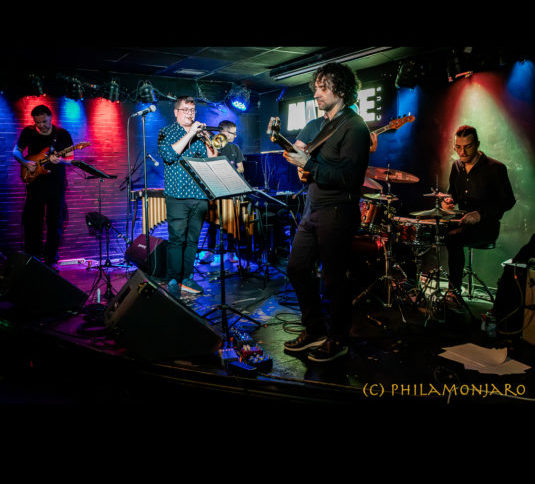
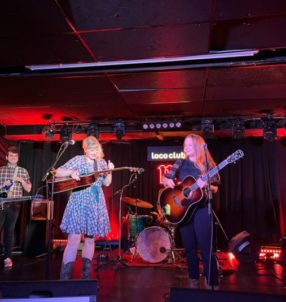
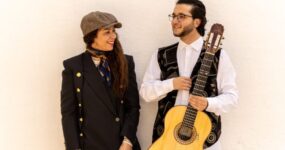
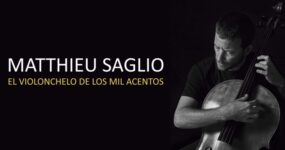
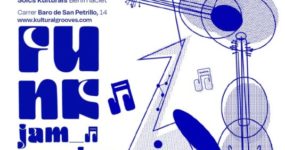
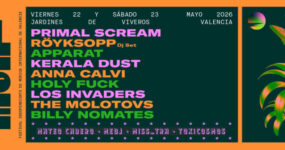

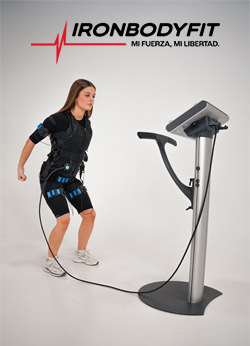
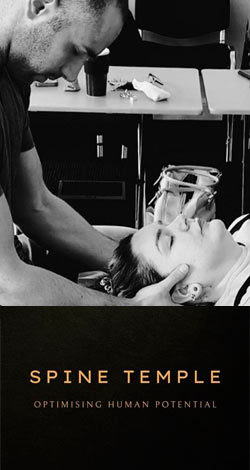















Leave a comment